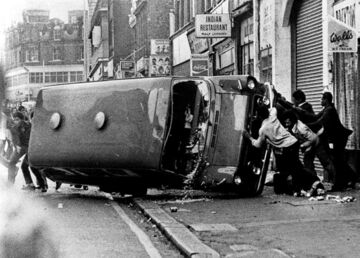Great Malaise

The Great Malaise was an economic depression in Septentrion that lasted from the late-1970s into the early-1990s. The depression is regarded as one of the worst and longest in recent history, with nearly every country affected across the world and global economic growth nearly bottoming out for years.
The cause of the Great Malaise is commonly linked to a number of high-intensity conflicts that occured in the mid-1970s, which brought a sudden halt to global trade that further worsened an increasingly stagnant global economy. This resulted in a sudden drop in a number of nation’s economic growth which further affected other nations in a domino effect.
The impacts of the depression were widespread and the response to the depression was varied. Nations like Sieuxerr further nationalized and increased the state’s control of the economic process, as well as justifying the state’s distrust of private capitalist interests.
Socio-economic effects
Sieuxerr
Sieuxerr had been dealing with a further stagnating economy leading up to the Great Malaise. Following a brief period of post-war boom, the looming war debts and rising inflation caused a gradual decline in its growth. Tensions between Sieuxerr and the Kingdom of Anglia and Lechernt skyrocketed towards the late 1970s, causing a limited cold war with incredibly high military expenditures and eventually the two sides came to blows with during the Sieuxerr-Tyrannian Conflict of 1978. The 1978 conflict would be the second time in history where nuclear devices would be used, this time both sides used nuclear devices against the other, resulting in over 10,000 deaths. The conflict rocked much of Casaterra as trade halted almost entirely between states at this point. With no real end of the conflict in sight and a further escalation to a strategic nuclear conflict looming, the Prince Imperial Napoleon VI ordered the 6th Armored Division to mobilize and advance in Limes, with the goal of forcing his father Napoleon V, to abdicate.
Following his father's abdication of the throne, the newly crowned Napoleon VI brokered a ceasefire between the United Kingdom and Sieuxerr. After this, he embarked on furthering government programs to assist the poor and unemployed, as global trade with Sieuxerr nearly ended, as well he was highly critical of opportunistic bankers and anti-worker capitalists, who he claimed to have been the primary cause for the breakdown.